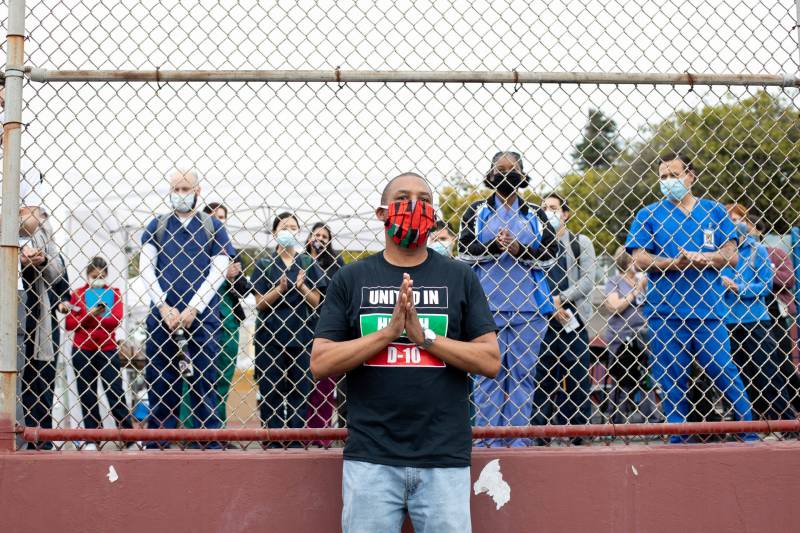While protesters flooded the streets of cities across the country this weekend, community groups set up medical tents and distributed hand sanitizer at the playground of Leola M. Havard Early Education School in San Francisco’s Bayview neighborhood.
It was the first two days of COVID-19 testing in San Francisco’s District 10 — which includes parts of the Bayview-Hunters Point and Visitacion Valley neighborhoods — the result of weeks of coordination between community advocates, UCSF doctors and city agencies.
The work follows last month’s United in Health initiative to test every resident of the Mission District, part of an effort to better understand how the virus spreads in some of San Francisco’s most vulnerable communities.
But no one involved in the new testing program anticipated it would launch in the middle of nationwide protests against police violence following the death of George Floyd, a black man killed by Minneapolis police on May 25, 2020.

